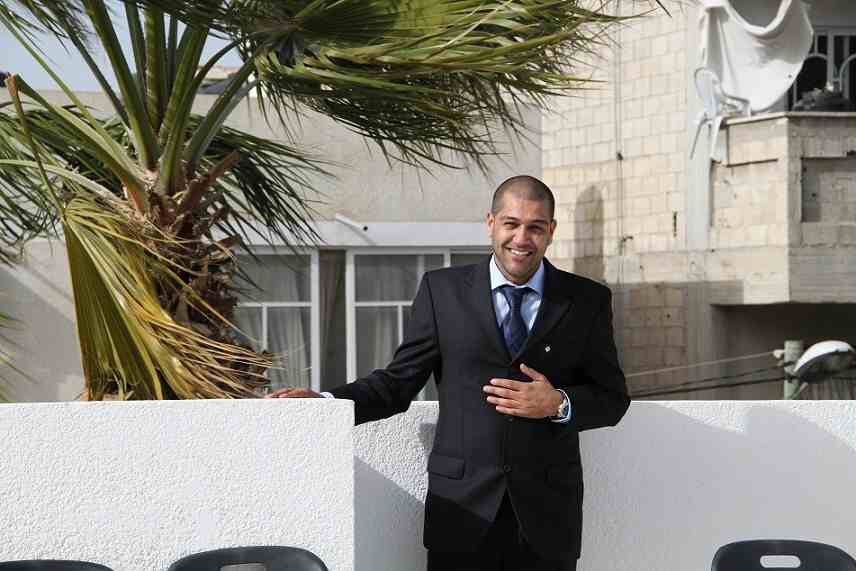
Khuram Shaikh, a British aid worker who was killed whilst on holiday in Sri Lanka.
“I was very naive in the beginning,” says Nasser Shaikh. He travelled to Sri Lanka and met with senior government officials after his brother had been brutally murdered. He had hoped for answers and the real truth.
“I guess they told me everything, I needed to hear.”
His brother Khuram had been on holiday to the south of the island, at the popular tourist town of Tangalle. “Khuram was a kind, generous, loving person with a huge amount of talent in his profession,” Nasser told the Tamil Guardian, as the family marked the 10 year anniversary of Khuram's death with the release of a new documentary.
As a Red Cross worker, Khuram Shaikh had worked on the frontline, providing aid in warzones. So his family had no worries when he went on holiday to Sri Lanka...until the police knocked on their door...
— Quest Red (@QuestRedtv) January 22, 2022
The Real Death In Paradise continues tonight at 10pm pic.twitter.com/wukHv7bZvn
An aid worker with the International Red Cross, his mission post was in Gaza during 2011 fitting fitting prosthetic limbs. For Christmas that year, Khuram and his friend Victoria decided to take a trip to Sri Lanka.
“He spent time travelling the world to learn about other religions, cultures and ways of life,” recalls Nasser. “Whilst I did not know much about Sri Lanka in terms of a holiday destination but I was aware of the history of conflict and war that went on for many years with tragic consequences for local people and communities.”
Having spent time in North Korea, Ethiopia and Gaza with plans to move to Cambodia, Khuram would have thought Sri Lanka was a safe zone. More than two years had passed since the end of the armed conflict that had raged on the island after a final and brutal military offensive killed tens of thousands of Tamil civilians. Then-president Mahinda Rajapaksa claimed “peace” had arrived, even as many Tamils remained displaced in military-run camps.
Tourist arrivals had begun to hit record highs and Tangalle was a popular destination. It was also the hometown of Sampath Chandra Pushpa Vidanapathirana.
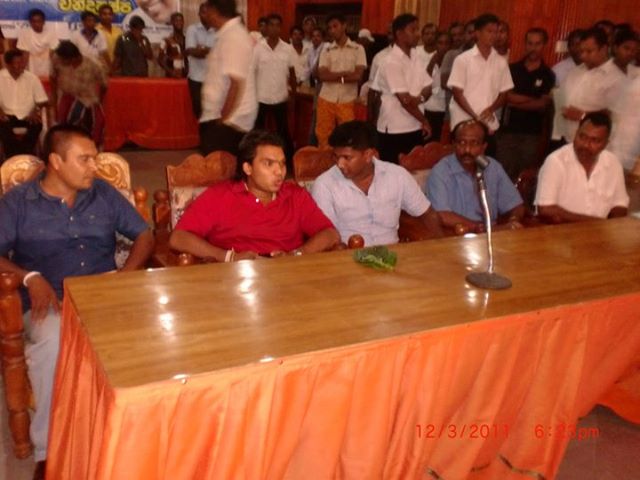
Vidanapathirana seated next to Namal Rajapaksa, son of current prime minister Mahinda Rajapaksa.
Vidanapathirana was well known in the town and across the island. A local bigwig at just 24-years-old, he was the head of the local Prathesa Sabai and a close associate with the ruling Rajapaksa family. He had a troubling reputation, once accused of involvement in the murder of an elderly woman in the run-up to the 2010 presidential elections. He was arrested and released without ever facing trial.
Christmas Eve in Sri Lanka
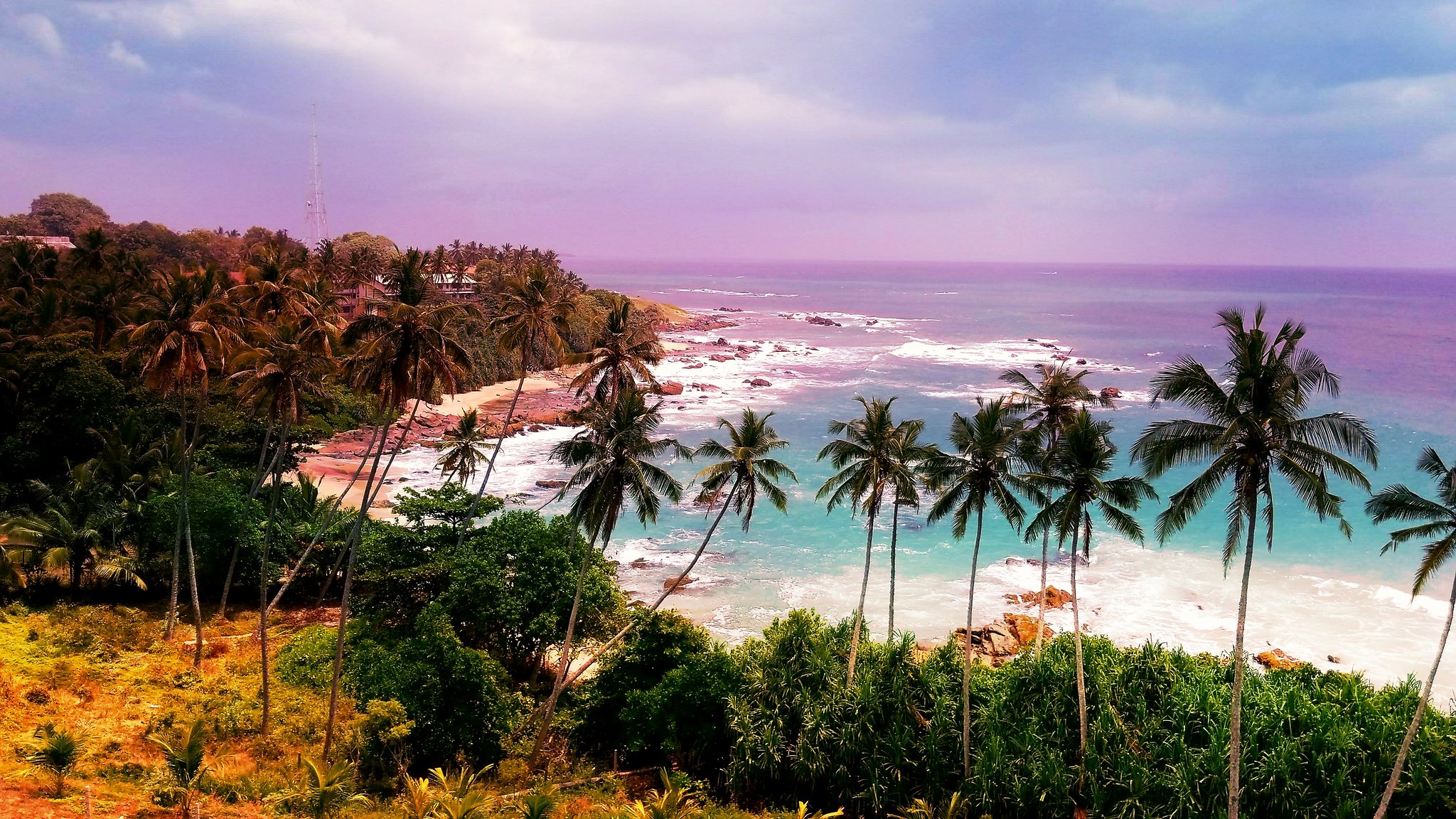
Tangalle at sunset (Courtesy Peter Addor)
On Christmas Eve, residents of the hotel including Khuram and Victoria were celebrating at a private function at the Nature Resort in Tangalle. That evening, a group of uninvited individuals turned up at the hotel event. Also present was Vidanapathirana and his associates. A dispute broke out amongst the group and a local man working at the hotel, who they began to assault. Khuram tried to intervene. “The foreigner tried to push aside those who were assaulting me,” said Denegama Vitharana Ryan Akalanka, the man who was being attacked by Vidanapathirana and his group. Akalanka escaped whilst the group of up to 15 men turned their fury on to Khuram and Victoria.
Khuram was beaten, repeatedly stabbed, slashed across the face and neck and shot in the head with an assault rifle. He suffered a total of 45 injuries, including a fractured skull. He died on the hotel floor. Victoria was assaulted and gang-raped.
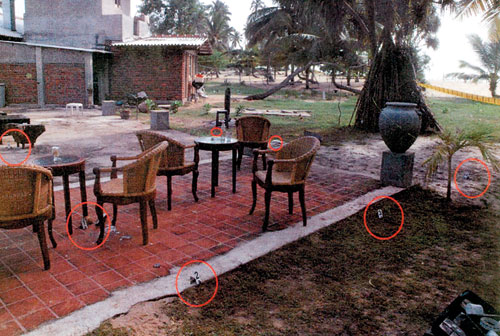
The murder scene.
'I knew this was going to be difficult'
It was Christmas Day in Manchester when Nasser received news of his brother’s murder. The gruesome killing had made national headlines in the UK and had drawn international attention. Sri Lankan authorities pledged to take immediate action.
The suspects were well known and with such a high profile case gaining mainstream media coverage, Vidanapathirana soon handed himself in. But from the outset, there were already concerns on how political interference would mar progress towards justice.
By the first anniversary of Khuram’s death, eight of the accused had been released on bail and Vidanapathirana had been fully reinstated into his post as chairman of Tangalle’s Pradeshiya Sabha.
“During the initial 6 months, there were slight concerns more specifically on the delay to trial, which seemed at odds on a murder investigation" Nasser continues. “But once all the accused had been granted bail a year to the tragic event, I knew this was going to be difficult and there were more underlying issues. Some of the Sri Lankan media continued to inform us that justice is extremely slow in the country and in many cases, especially high profile ones, where justice is never granted,” says Nasser.
“Many local residents had been waiting years and years for answers.”
A Tamil woman cries at a protest calling for justice for forcibly disappeared Tamils.
To this day, many on the island, especially Tamils, are still searching for answers for their disappeared loved ones and seeking justice for mass atrocities committed by Sri Lankan state forces. The Sri Lankan government has refused to allow any international investigative or accountability mechanisms, whilst also pledging to protect soldiers from prosecution.
“I remember some journalists advising me, that our case could take around 10 years and it is probably pointless to pursue,” he continues. “I vividly remember laughing at them to even suggest that to me and to think it is an acceptable timescale should I continue on. One of the persons who mentioned this was from the state TV on the day we did the press release in Colombo, so this comment didn't surprise me.”
'It was obvious they were trying to sweep this under the carpet'
By mid-2013 Nasser had made several trips to the island and met with Sri Lankan government officials. “No doubt it was a tactic being used for me to go back to the UK and give up,” he says.
“We flew out numerous times and spent hours meeting Sri Lankan civil servants and politicians only to be, as one says 'fobbed off' each time,” he said in a press release last month. “It was obvious they were trying to sweep this under the carpet as tourism was extremely important to them. They even changed the name of the hotel to pretending it never existed. But you have to remain focused, not get disheartened and keep going. I could not begin to start grieving until Khuram's killers were jailed.”
He had begun to experience first-hand how murky the island’s history and politics were.
A New Yorker documentary on Nasser's struggle for justice and trips to Sri Lanka.
“I learnt very quickly about the more in-depth detail on war crimes, impunity and corruption within both government and the army,” recalls Nasser.
“I took the opportunity to watch the film 'No Fire Zone, Killing Fields of Sri Lanka' back in 2013 - it was a piece powerfully directed by Callum Macrae who I had the opportunity to meet. His statement is so important and is one to remember "if there is no attempt to address the issues and bring justice to those who suffered, then history is destined to repeat itself”.
Nasser enlisted the help of his then local Rochdale MP Simon Danczuk, someone he described as “at the heart” of the campaign for justice and who had given “relentless support from the outset”. Together they began what would be a long and intense fight to ensure Khuram’s killers would be held accountable.
“If there’s one thing I’d learned from politics it’s that every campaign needs to understand the landscape on which it operates,” wrote Matt Baker, a former adviser for Danczuk earlier this month. “Frankly, we didn’t understand the reality of Sri Lanka at all.”
“Politics there was, to put it mildly, a very different world. In Westminster, the Liberal Democrat MP Chris Huhne had been jailed over speeding points. Yet in Sri Lanka, a politician who had seemingly committed murder in front of numerous witnesses was released on bail and allowed to assume his work as a Town Council leader in Tangalle. He wasn’t even suspended from his party.”
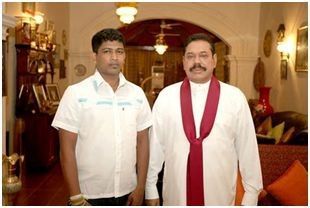
Vidanapathirana and Mahinda Rajapaksa.
Matt who was reflecting on the 10-year anniversary of Khuram’s death described how they felt when they saw a photograph of Vidanapathirana with then Sri Lankan president Mahinda Rajapaksa. “It was a chilling image and we immediately knew the odds were heavily stacked against this case ever going to trial,” he said.
CHOGM 2013 in Colombo
In 2013 however, Sri Lanka was to come under the international spotlight once more, as it scrambled to host the Commonwealth Heads of Government (CHOGM) Summit in Colombo. A member of the British Royal Family and then- Prime Minister David Cameron were set to attend, despite calls from Tamils and human rights groups worldwide to boycott the event. Canada’s then-Prime Minister Stephen Harper and India’s then-Prime Minister Manmohan Singh had already pledged to do so.
“Our campaign switched to focus solely on two things,” said Matt. “Doing everything we could to damage Sri Lankan tourism and making sure that CHOGM was overshadowed by Sri Lanka’s terrible human rights record, with Khuram’s case being mentioned at every opportunity.”
“We accused British Airways of being irresponsible and unethical for naming Sri Lanka as their number one travel choice in 2013, highlighting Khuram’s case and also the fact that in 2012 there had been 700 child rapes there.”
“We challenged the idea of Sri Lanka as an idyllic holiday destination at every opportunity and lobbied MPs, Ministers and Sri Lanka’s High Commission. Questions were asked in the House of Commons and we flew to Sri Lanka to conduct an exhausting round of meetings with politicians, police, civil servants, the British High Commission and journalists.”
“Simon travelled to Sri Lanka and was very clear in his statements that justice must be delivered and a trial date must be set,” added Nasser. “After all, for me, we were not there to play happy families, we were there to lay down the gauntlet, as one would say. The wait was simply not acceptable.”
“Our campaign in 2013 was already gaining traction with the impending Commonwealth Heads of State Summit, and other countries were beginning to talk about the murder case,” he adds. “We must not forget, this case was known in many countries due to Khuram working for International Committee for Red Cross, so I believe it was more about how long we would have had to wait than the outcome.”
“David Cameron was ready to challenge President Rajapaksa over Khuram’s death,” continued Matt. “When the summit began Rajapaksa was a diminished figure and David Cameron wrote to us to say he had raised the case very directly with the Sri Lankan President."
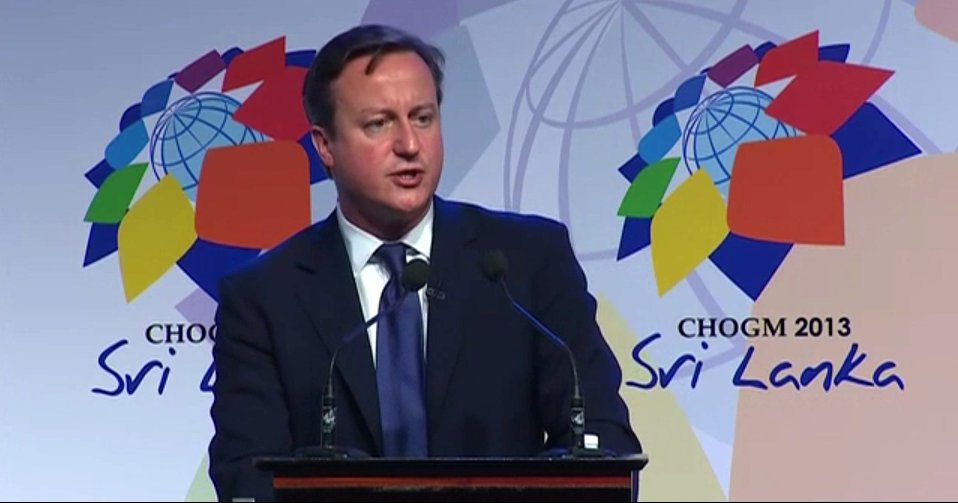
Cameron’s whirlwind visit to the island was a significant one. He first toured Jaffna, where protesting mothers of the disappeared accosted his convoy, before returning to Colombo for what he later described as a “showdown” with then-president Mahinda Rajapaksa and his younger sibling, Gotabaya Rajapaksa, who is currently Sri Lanka’s new president.
“His brother, the defence minister who had supposedly issued orders for the terrible events at the end of the war, reared out to shake my hand,” wrote Cameron in his 2019 autobiography. “I kept my hands by my side, and sat down.”
“As we walked out, William Hague said it was the worst tempered foreign meeting he’d ever been in.”
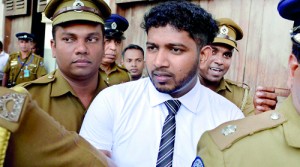
Vidanapathirana.
The pressure, however, began to pay dividends.
Months later, Vidanapathirana was arrested for breaking bail conditions. And though concerns of political interference continued to plague the case, eventually Vidanapathirana and three other men were found guilty of culpable homicide with multiple charges including rape and misuse of a firearm. The four found guilty were sentenced to 20 years imprisonment. Two others were acquitted.
“I was expecting life sentences to be granted for murder,” says Nasser. “But the judicial system has reprieved this for many years, so the 20 years each imprisonment was the best outcome we could achieve. It is now important that this full term is served by them all as a minimum for what they did.”
Last month, a new documentary was launched on one of the fastest-growing streaming platforms Discovery+ featuring Khuram’s killing and his family’s struggle for justice. The series named 'The Real Death in Paradise' documents the events and the journey that Nasser and others went through to finally get justice.
“It's extremely important his story is told again and again, not only as a reminder to Sri Lanka which spends millions focusing on tourism but for awareness to anyone planning to travel to be mindful of this undercurrent that exists, as this is not showcased in glossy brochures,” says Nasser.
“Completing this documentary is part of the 10-year anniversary of the project. The Khuram Shaikh campaign has maintained its community followers globally and we remain active in support, as one voice for many, and we need to ensure this tragedy is never repeated again.”
Despite his death, Khuram’s work continues to have an impact around the globe.
“I need the world to know what a huge loss he has been to his profession,” Nasser says, reflecting on his brother’s accomplishments.
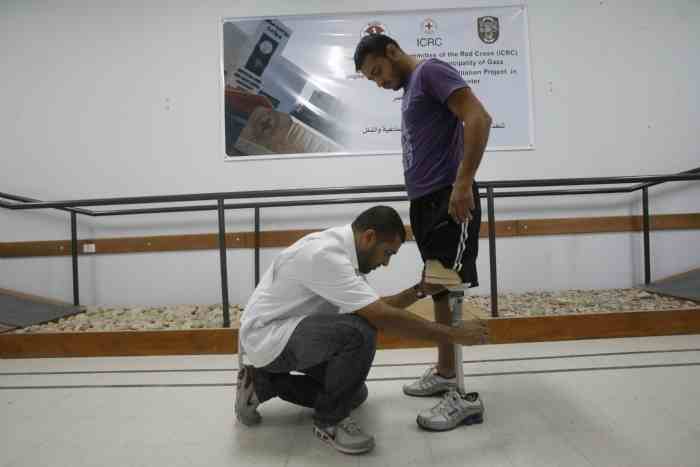
Khuram in Gaza.
“It takes someone special to leave their own family and home to work in another country, let alone in war-torn places. His legacy will continue on through the clinical suites named after him in both Manchester (University of Salford) and in Gaza (Artificial Limbs & Polio Centre) as students, staff, patients and all service users will be connected and inspired to Khuram's life as they create their own journey.”
However, Nasser acknowledges that in Sri Lanka there remains little accountability for mass atrocities.
“The British government will and should continue to engage on the topic of the appalling human rights record and push to have independent investigations to take place especially as the government fails to uphold commitments to the UN Human Rights Council on justice and reconciliation,” he tells us.
“Intimidation, harassments, violence against women, and disappearances are accounts continued to be portrayed in media, yet the government deny such violations and blame misconceptions and exaggerations.”
“My heart goes out to all the victims’ families that have lost loved ones,” he adds. “What is critical is the lessons learned in this murder case, Sri Lanka must take note of history, adopt changes, keep tourists safe, re-educate and invest in the judiciary to improve waiting times on cases.
“Families should not be denied the truth.”
_____
Keep up to date with the Justice for Khuram Shaikh page here.
